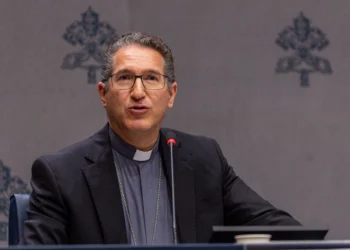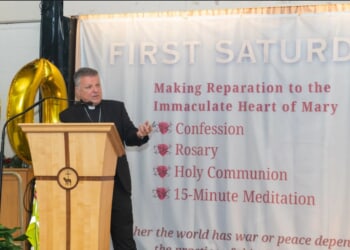Tommy Birch is a Director of Strategy at Metamindz UK, local councillor, Deputy Chairman and CPF Leader at Hertsmere Conservatives.
The Conservative Party faces a deeper challenge than a cycle of policy renewal or a change in leadership. Across the West, traditional centre-right parties are being squeezed by populist movements that thrive not on governing records but on spectacle. Britain is no exception.
Reform UK has risen by presenting itself as unfiltered, uncompromising, and emotionally resonant. Its strength is not in policy or excellent parliamentary record; it has little of either, but in saturation: a relentless media and social media presence, powered by sharp slogans and a single recognisable figurehead.
Reform’s calculated approach mirrors the rise of the AfD in Germany, the National Rally of Marine Le Pen in France, and Girt Wilders in the Netherlands. In each case, mainstream conservative parties have struggled when they attempt to fight populism on its own terrain. Outrage is cheap to manufacture; trust is not. And when trust is neglected, voters drift towards whoever seems to “speak plainly,” even if the message is hollow.
Reform has pursued what can be called a national broadcast strategy:
- A one-man show: the brand revolves almost entirely around Nigel Farage, his media profile, and his ability to command attention. We hear very little about his other MPs’ work, that is, when he doesn’t belittle them on central stages at his party rallies.
- Cheap amplification: provocative messaging travels quickly on platforms like Facebook, TikTok, and GB News, outpacing nuanced debate, which Farage is an expert in leveraging to mitigate the pitfalls of his frequent change of heart when it comes to actual policy.
- Emotional resonance: slogans of betrayal, anger, and “taking back control” are designed to evoke a sense of authenticity and catharsis without committing to a plan.
The result is visibility without depth. Reform is omnipresent in headlines and feeds; it allows them to gain popularity without demonstrating competence, promotes a narrative without requiring hard work in Parliament, and gets their supporters to make excuses for them, all thanks to their emotional rhetoric.
Reform, however, is largely absent in local spaces where trust is built. This imbalance now gives them some strength, but over time, it will prove itself to be their Achilles’ heel.
The Conservative Party, meanwhile, has not lacked for policy or announcements. No, what it has lacked is trust; that has cost us the last general election, with the sentiment further echoed in the county council elections last May.
Politicians cannot act in complete detachment from local conservative associations. Too often, party associations have been reduced to fundraising arms and election-time machines. The public views Conservatives as appearing only at election time, and members may feel that they are being taken advantage of. This creates a dangerous perception: that Conservatives are managerial and distant, alienating members who joined because they wanted to engage with their local community and promote conservatism, making Reform seem like the only party truly engaged with the public and outspoken about what people care about.
The Conservative Party must rebuild trust by utilising its networks, councillors, and volunteers, delivering real local change from the bottom up, but unless those strengths are put back to work, the perception will harden into fact.
Unlike populist media blitzes, grassroots engagement has measurable effects. Political science research is consistent on this point:
- A parliamentary report found that face-to-face canvassing increased turnout by 6-7 percentage points, and phone calls by 7.3 points, compared with no contact at all.
- A meta-analysis of European campaigns revealed that door-to-door canvassing increases turnout by an average of 2.5 points, with volunteer phone outreach adding nearly two points.
- In contrast, most mass media advertising has diminishing returns – especially when overused – with little long-term impact on trust or turnout.
The conclusion is straightforward: direct human contact outperforms national noise; however, these commonly used practices will not be enough to rebuild trust. We must double down on our efforts in grassroots initiatives and enhance our engagement with the local community, regardless of the election cycle. Reform can dominate the airwaves, but it cannot replicate the relational networks Conservatives already have through councillors, associations, and community activists.
The answer is therefore not to mimic Reform’s provocation but to rediscover Conservative strengths: local responsibility, quiet service, and visible delivery. Ipsos surveys (2023, 2024) support this, revealing that trust in politicians is as low as nine per cent, whereas trust in active members of the community is as high as 66 per cent. That means local associations must transform from electoral machines into community anchors. Four principles should guide that shift:
- Listen first: associations must begin with local concerns, such as schools, safety, and services, rather than Westminster debates.
- Be present year-round: visibility must extend beyond elections; a constant, steady presence builds recognition and trust.
- Embed in civic life: Conservatives should be seen alongside local charities, sports clubs, and neighbourhood groups, demonstrating shared responsibility.
- Prove delivery: even small wins, whether fixing a local issue or helping coordinate a community project, must be communicated back to residents regularly.
These are not tactical secrets; they are enduring truths of grassroots politics. What matters is the discipline to practise them consistently. Reform’s strategy is loud but shallow: a megaphone without a foundation. It thrives on attention but struggles to deliver at the ground level.
The Conservative alternative is quiet but durable: rebuilding trust through visibility and service. It is slower, but it is stronger. Where Reform creates division, Conservatives can build cohesion. Where Reform sells anger, Conservatives can sell reliability on scale. This contrast is not aspirational, it is strategic. Populists cannot be beaten at their own game. They can only be beaten by changing the game.
The Conservative Party cannot afford to cede the ground of community life. National policy renewal is necessary, but it is insufficient. Trust is the real currency of politics, and it can only be rebuilt locally. Every association is capable of this work. It does not require vast resources; only constancy, humility, and presence are needed.
Reform may dominate headlines, but Conservatives can dominate something far more powerful: the daily reality of people’s lives. By committing to grassroots principles, elevating volunteer party members rather than focusing on elected representatives, the Conservatives will not only counter the rise of populism but also restore the party’s place as the natural anchor of Britain’s public life.








![Florida Officer Shot Twice in the Face During Service Call; Suspect Killed [WATCH]](https://www.right2024.com/wp-content/uploads/2025/12/Inmate-Escapes-Atlanta-Hospital-After-Suicide-Attempt-Steals-SUV-Handgun-350x250.jpg)








